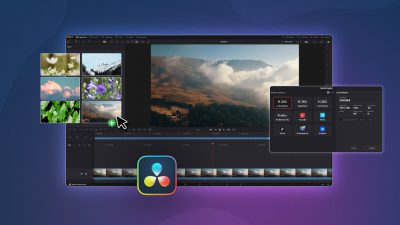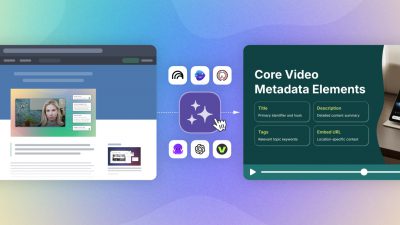Writing a script can be hard. You have all these ideas floating around in your head, but putting words to paper is tricky. Here are some tips to help you turn those ideas into an online video script.
1. Brainstorm
Even though the words of your script will never be seen by your audience, a script has to be well-teased out, just like any novel. Get yourself a nifty dry erase board so you can scramble down ideas like a maniac. Make flow charts and diagrams. You probably have some great ideas floating around in that head of yours, but there are likely some gaps you need to fill in.
Our natural inclination is to keep the details of these types of projects top secret, but your friends and family are a great resource. Their feedback is valuable, especially when they might point out parts of your script that don’t make sense to an audience.
Also, the simple act of voicing your ideas aloud can help you tease out your plot, devices, and character development if you are telling a story in your online video.
2. Loglines
Loglines are short synopses of a plot. They sum up the entire script in about 27 words. A logline is basically a plot abstract.
Writing a logline is important for several reasons. Loglines are lifesavers for marketers. The single sentence helps them to sell the movie or talk about it to the press.
Loglines are also good for you. Summing up your film concisely will help you to avoid getting muddled up in your ideas, or straying from your main concept.
3. Outline
Outline your paper. Writing a framework for your script will save you when your thoughts begin to feel like a mental omelet. An outline will work to visually show you how your story is going to move, and help to organize your thoughts.
You can even make yourself a storyboard. Your storyboard is a great visual planning tool, and translates well from concept to execution.
A detailed outline is an anchor for when you finally start writing your script. Further, outlining will help you to pace your story, which can be especially important when you’re working with a very specific window of time.
4. Beginning, middle, end
Script writing is daunting, getting from the beginning to the end can be grueling. But, the guy who said that bit about the “journey” was right—it really is important. Frodo would still be stuck in the shire if he hadn’t gone on a ridiculously long journey.
When you’re writing your script, make sure you consider all of these parts of your storyline, even if your video is relatively short.
Beginning: Your beginning needs to grab your audience, especially since your writing for an online video. Your audience hasn’t shelled out money to be there. They have the freedom of moving on… quickly. Getting the plot moving quickly and developing characters are ways to get your audience vested.
Middle: The middle can be the most challenging part of your script to write. You’ve hooked your audience, but now have to keep the story interesting. In fact, the difficulty with many scripts is the middle. How do you keep your audience sitting in front of their computers? Engage them. Surprise them. Make them feel things. Here’s where that outline comes in.
The End: You don’t have to write a happy ending, but you should think about how your ending can satisfy your audience. Sometimes we do want to see the guy get the girl, but sometimes we want an ending that challenges our beliefs and conventions. If you’re writing for a series, consider what questions you’re going to leave unanswered and how you’re going to get your audience vested enough to watch the next installment.
5. Elements
Mood, setting, point-of-view, transitions. You have a lot to think about. These are the elements that are going to serve as the glue that binds your story together.
An online video can be similar to a novel in some ways, yet completely different in others. Details like scene transitions are things you’re going to have to think about showing rather than telling.
How is your video talent going to exit the video? Is the room you’re filming in a traditional office or a modern living space? Do you want to use excessive sepia to convey a tone or setting? The foundation of your video is your plot, but all these details are going to bring it together.
6. Make time
Forcing yourself to write can be… taxing. One of the hardest parts of script writing is getting the thoughts in your head to sound intelligent on paper.
You have all these obstacles in your way: writer’s block, work, a migraine, your cat. Not all of us are blessed with the ability to squirrel away for a few days, fueled by a force of divine inspiration.
Whether it’s everyday, every other day, or every other week, make time to write and just do it. Even if the words you’re putting down aren’t your final version. Just do it, because your cat, the latest Gordon Ramsey show, or a phone call from mom are always going to get in the way.
7. Context
Context is one of those things that you probably don’t think about when you’re watching a video. Unless you’ve mastered the art of avant-garde filmmaking, work context into your script.
You want to give your audience a clear understanding of your script’s world and conditions of that world. Context can be subtle—a character dressed in black lets your audience know they’re in mourning. A particular skyline indicates location. What’s the weather outside? What are your actors wearing?
These small touches make a huge difference and will eliminate unnecessary dialogue. Why say something that you can show.
8. Emotion: Once more with feeling
One of the most important elements of your script is going to be emotion. Emotion is the human condition. It’s at the heart of all good movies, books, songs, and commercials.
We connect with characters. We feel sympathy for them. We feel unfathomable hate towards them. We want our heroes, or anti-heros, to win. Or lose.
For many of us, we watch movies because we are emotionally vested in the plot. We are right there with the characters.
Emotion isn’t just added in by actors, it’s written into the narrative, waiting to come to life. Think about how you’re going to develop emotions, both in your characters and your audience.
Have any scriptwriting tips of your own to share? Have specific questions about the process of scriptwriting for online video? Leave them in the comments section below, on our Facebook page, or tweet us at Twitter!







